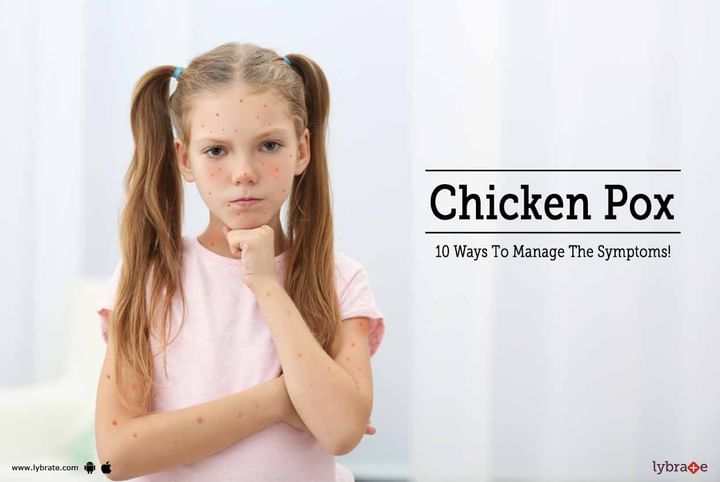Get the App
For Doctors
Login/Sign-up
Last Updated: Jan 10, 2023
BookMark
Report
Chicken Pox - 10 Ways To Manage The Symptoms!
Chicken Pox is an extremely infectious viral disease that leads to itchy blister like formations ((rashes)) on the skin. It can also be accompanied by mild fever and a general loss of appetite. The pathogen responsible for this disease is the ‘Varicella-Zoster’ virus. It usually affects children under the age of 15, but it can affect an adult too and in such a case, the symptoms are usually more severe. Vaccination is generally recommended in order to prevent the occurrence of this disease.
Tips to manage the Symptoms
- To tackle symptoms such as high fever, paracetamol is generally administered.
- Calamine lotion might be applied on to the rashes to manage the severe itching. Emollient (soothing) creams can also be applied to ease the effects of the rash.
- An antihistamine (eases out the itch and also makes one feel a bit drowsy) can also be administered if the itch happens to cause extreme discomfort.
- You should trim your fingernails to prevent any deep accidental scratches as that will only worsen the symptoms.
- The patient’s clothes and his immediate surroundings must be properly disinfected.
- The fabric should be strictly limited to cotton so the infected person doesn’t feel overly hot or cold. Cotton is a comfortable wear as well.
- Drink sufficient water to keep yourself hydrated and flush out the toxins from the body.
- The diet should be kept simple and absolutely non-spicy. Mild stews are a good option. Plain chicken soup works fine as well.
- A medication called ‘acyclovir’ is sometimes administered as it can help pacify the effects of the virus to an extent; if taken within 24 hours of the onset of the rashes.
- Limit alcohol consumption and quit smoking. Try and turn a new leaf with respect to your lifestyle. A healthy lifestyle devoid of such unhealthy habits can strengthen your immune system. A strong well-functioning immune system goes a long way in preventing diseases of different kinds. If you wish to discuss about any specific problem, you can consult a General Physician.



+1.svg)
